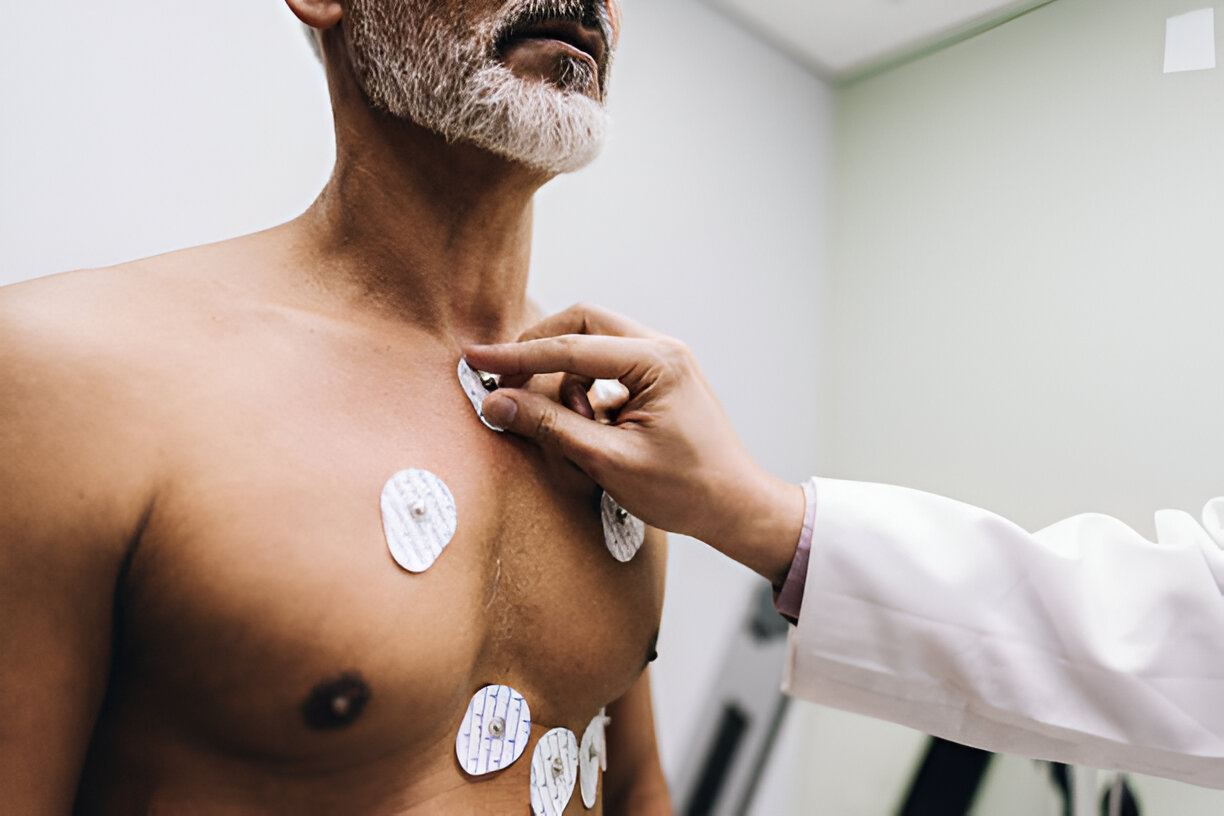
Maintaining cardiac health is important, as your heart pumps blood to other organs. However, sedentary lifestyles, unhealthy foods, and a few other factors cause risk to your heart. When you experience a cardiovascular disease, you must contact a specialist without delay. The cardiologist recommends a medical test to diagnose heart disease. Electrocardiogram is the most common heart test to detect blockages in the organs.
What is an electrocardiogram?
An electrocardiogram is an innovative test that evaluates your heart function. An ECG machine has 12 electrodes, which are small plastic patches. 10 electrodes are implanted in your chest and arms. Others are placed on your calves and forearms. The technician connects them to your ECG machine, which tracks and prints your heart’s activities. The overall heart test with the machine takes around 10 minutes. Your heart’s electrical impulses align with contractions that ensure proper blood flow. The electrocardiography device records the impulses and shows-
- Your heart’s rhythm
- Rate
- Electrical signals’ timing
Fluctuations in ECG indicate different heart disorders. But, remember that although ECG provides data on electrical activities, the report does not directly show heart blockages. It identifies your heart’s impairment, which needs further diagnosis. ECG is a non-invasive, safe test for heart patients. It does not transmit electricity directly into your body. So, you can visit a local hospital for this test.
When does a heart specialist recommend an ECG?
The cardiologist recommends ECG if you have symptoms like-
- Shortness of breath
- Dizziness
- Palpitations
- Chest pain
Patients with hypertension and diabetes also have cardiovascular risks. So, cardiologists use ECG reports to learn about the effectiveness of pacemakers and medications. You may also need to take an ECG test after undergoing heart surgery.
Which heart disorders are detectable with ECG?
- Arrhythmias that cause an erratic heartbeat (too slow or fast)
- Electrolyte imbalances due to unhealthy levels of calcium and potassium
- Myocardial infarction, a type of heart attack
Types of electrocardiograms
There are various categories of ECGs to assess your heart function.
- Resting ECG- The technician will conduct this process when you are lying still. You should stay calm during the test, as a slight movement will affect the result.
- Stress ECG- When you do exercise, the machine will help with a stress ECG. This process allows the professionals to determine how your heart works under stress.
- Holter monitoring- You need to wear a portable ECG device for 24 hours to record your heart’s activity. You may carry on your regular activities, and the cardiologist will analyze the recorded details later.
- Event recorders- Like Holter monitors, event recorders are portable. However, you need to turn on the device, when you experience symptoms.
How does a cardiologist interpret an ECG report?
The best cardiologists interpret different waves to read the ECG report.
- QRS complex showing ventricular contraction
- P-wave represents atrial contraction
- T-wave stands for ventricular relaxation
But, if your heart is healthy, waves are consistently spaced. A slight deviation indicates a cardiac issue. So, visit a heart hospital in Vadodara to understand the ECG report.
Do you need ECGs regularly?
Cardiologists recommend regular ECGs for people who have diabetes and high blood pressure. If there’s a family history of cardiac disease, you must consult an expert for the heart test. Moreover, those with chronic heart disorders will benefit from electrocardiograms.
Conclusion
ECG is a reliable and safe heart test that diagnoses different cardiac diseases. It is intended to track the real-time condition of your heart. The cardiologists understand your heart health by interpreting the report. But, they may recommend other tests to make accurate diagnosis.

































